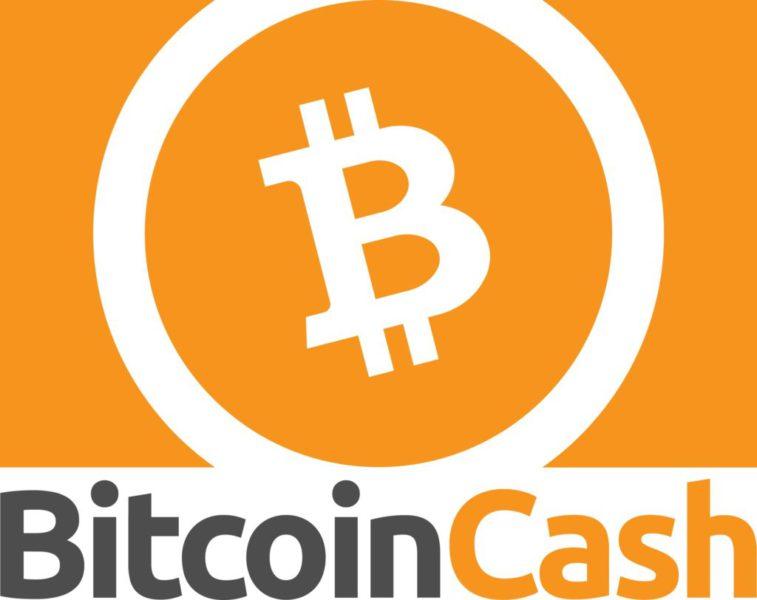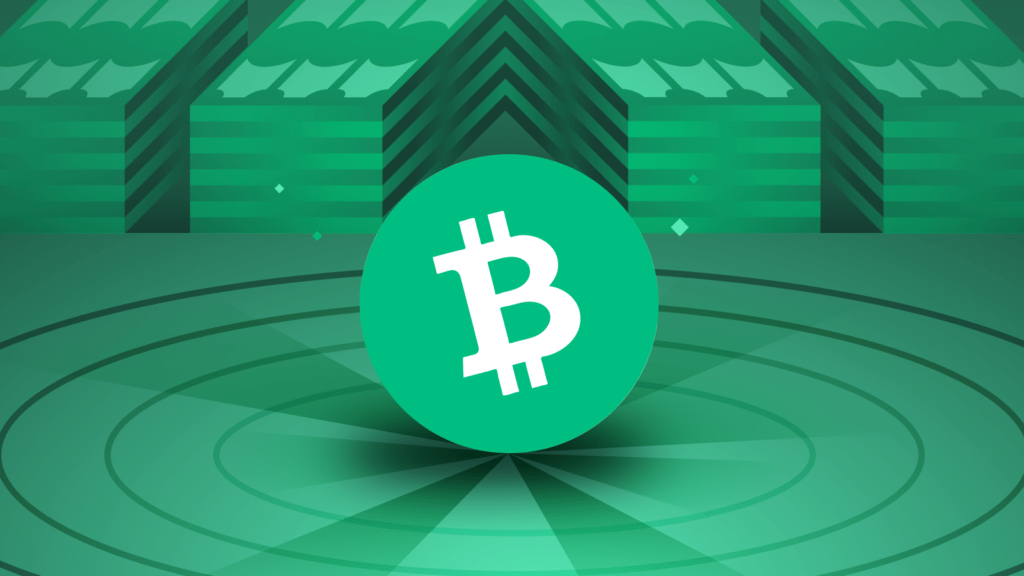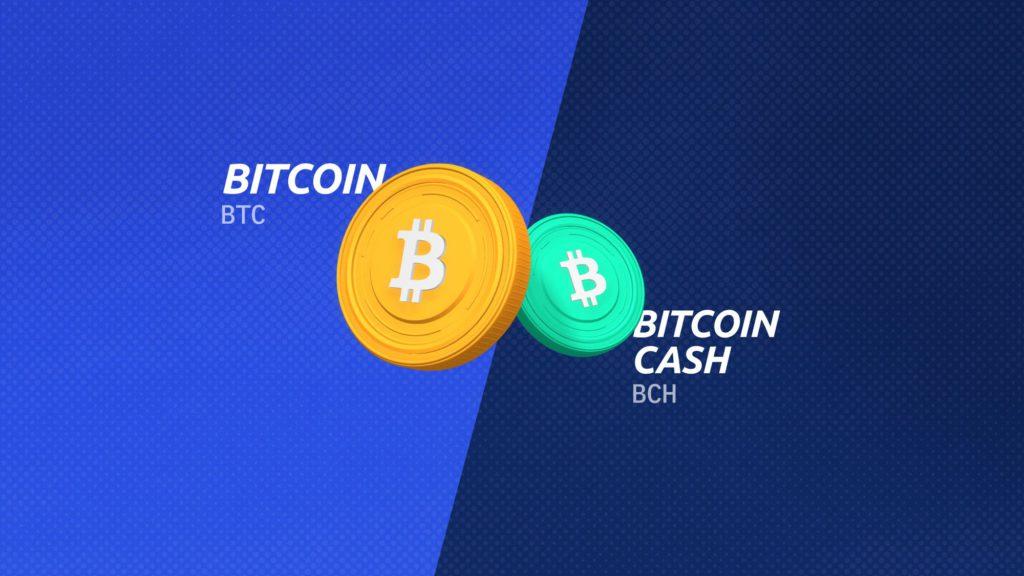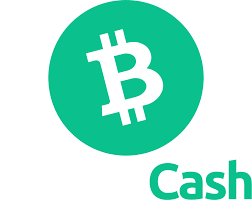Your Ultimate Guide to a Peer-to-Peer Electronic Bitcoin Cash System

Bitcoin Cash, often abbreviated as BCH, emerges as a pivotal player in the vast and dynamic landscape of cryptocurrencies. Stemming from the renowned Bitcoin network, Bitcoin Cash represents an evolution in the pursuit of a scalable, peer-to-peer electronic cash system. In this comprehensive guide, we delve into the intricacies of Bitcoin Cash – its origin, features, use cases, and the broader implications it holds for the world of digital finance.
Genesis of Bitcoin Cash: The Fork from Bitcoin
Background:
Bitcoin Cash came into existence through a contentious hard fork in the Bitcoin blockchain on August 1, 2017. This fork was primarily a response to the scalability challenges faced by Bitcoin, particularly in terms of transaction speed and fees.
Scaling Debate:
The scaling debate within the Bitcoin community revolved around the block size limit. Bitcoin Cash proponents advocated for an increase in the block size to accommodate more transactions per block, thus addressing congestion and reducing transaction fees.
Birth of Bitcoin Cash:
The hard fork resulted in the creation of a new blockchain, Bitcoin Cash, with a larger block size of 8 megabytes (MB) compared to Bitcoin’s 1 MB. This adjustment aimed to enhance transaction throughput and maintain the vision of Bitcoin as peer-to-peer electronic cash.
Also, read – Your Ultimate Guide To Bitcoin Futures ETF (Exchange-Traded Fund)
Key Features of Bitcoin Cash

Bitcoin Cash (BCH) is a cryptocurrency that emerged as a result of a hard fork from the original Bitcoin (BTC) in August 2017. Bitcoin Cash was created to address scalability issues and offer a peer-to-peer electronic cash system. Here are the key features of Bitcoin Cash:
- Increased Block Size:
- One of the primary features that distinguish Bitcoin Cash from Bitcoin is its larger block size. Bitcoin Cash has an 8 MB block size (which can be further increased through network upgrades), allowing for more transactions to be processed in each block compared to Bitcoin’s 1 MB block size. This aims to enhance the scalability of the network and reduce transaction congestion.
- Faster Transactions:
- With larger block sizes, Bitcoin Cash can accommodate more transactions per block, leading to faster confirmation times. This is essential for a cryptocurrency aiming to serve as electronic cash for everyday transactions, as users can experience quicker and more efficient payment processing.
- Low Transaction Fees:
- The larger block size not only facilitates faster transactions but also helps keep transaction fees relatively low. With more space available in each block, users are less likely to experience high fees during times of network congestion, making Bitcoin Cash an attractive option for microtransactions and day-to-day spending.
- Segregated Witness (SegWit) Integration:
- Bitcoin Cash has integrated Segregated Witness (SegWit) technology, similar to Bitcoin. SegWit separates transaction signatures from the transaction data, optimizing block space and improving overall network efficiency. This integration enables the implementation of second-layer solutions and enhances the network’s capacity.
- Decentralization:
- Bitcoin Cash, like its predecessor Bitcoin, operates on a decentralized peer-to-peer network. This ensures that no single entity or authority has control over the currency. Decentralization is a fundamental principle in the world of cryptocurrencies, providing security, censorship resistance, and resilience against single points of failure.
- Smart Contracts and Tokenization:
- Bitcoin Cash has the capability to support smart contracts and tokenization through protocols like Simple Ledger Protocol (SLP). SLP allows users to create and manage tokens on the Bitcoin Cash blockchain, enabling a variety of use cases such as tokenized assets, token sales, and more.
- Community Consensus and Development:
- The development of Bitcoin Cash is driven by a community of developers, miners, and users who engage in open discussions and decision-making processes. Consensus mechanisms guide the network upgrades, and changes to the protocol are often the result of broad community support.
- Adoption and Merchant Acceptance:
- Bitcoin Cash has gained acceptance among merchants as a medium of exchange. Various businesses and online platforms accept BCH for goods and services, contributing to its utility as electronic cash for everyday transactions.
- Continuous Development and Improvement:
- Bitcoin Cash undergoes regular protocol upgrades to introduce new features, enhance security, and address any issues that may arise. The development community remains active, ensuring the continuous evolution and improvement of the network.
Understanding these key features provides insight into the unique characteristics of Bitcoin Cash and its positioning in the broader cryptocurrency ecosystem. It remains an interesting player in the ongoing discussions about scalability, transaction speed, and the role of cryptocurrencies in daily transactions.
A bet on Bitcoin is a bet that the governments globally will continue to be irresponsible when it comes to monetary policy.
Will Bitcoin win in the end? Maybe, or maybe it won’t. Maybe Bitcoin Cash will win in the end? I don’t know & I won’t pretend to be some guru that does.… pic.twitter.com/o8vn3PHrjP
— Robert Rybak 🗽🇵🇱🇺🇸 (@rob_rybak) November 20, 2023
Use Cases and Adoption of Bitcoin Cash

Bitcoin Cash (BCH) has found applications across various sectors and has been adopted for a range of use cases since its creation. Here’s an in-depth look at the prominent use cases and the level of adoption Bitcoin Cash has experienced:
1. Peer-to-Peer Transactions:
- Micropayments: Bitcoin Cash’s low transaction fees and faster confirmation times make it well-suited for micropayments and everyday transactions. Users can send and receive small amounts of BCH without worrying about high fees, making it practical for daily spending.
2. Online Payments and Merchants:
- Merchant Adoption: Bitcoin Cash has gained acceptance among various merchants and online platforms. Businesses across different industries, including gaming, travel, and e-commerce, have integrated BCH as a payment option. This adoption enhances the practicality of Bitcoin Cash for online purchases.
3. Remittances:
- Cross-Border Transactions: Bitcoin Cash’s borderless nature makes it a viable option for cross-border transactions and remittances. Its low fees and quicker transaction confirmations provide an alternative to traditional remittance methods, particularly in regions where access to banking services is limited.
4. Tokenization and Smart Contracts:
- SLP Tokens: Bitcoin Cash supports the Simple Ledger Protocol (SLP), enabling the creation and management of tokens on its blockchain. This functionality facilitates the tokenization of assets, enabling the representation of various assets (e.g., real estate, stocks) on the BCH blockchain.
5. Decentralized Finance (DeFi):
- DeFi Applications: Bitcoin Cash has seen integration into decentralized finance applications. The use of BCH in lending, borrowing, and other financial services within a decentralized framework contributes to the growing DeFi ecosystem.
6. Privacy Features:
- CashShuffle and CashFusion: Privacy features like CashShuffle and CashFusion have been integrated to enhance the privacy of transactions on the Bitcoin Cash network. These technologies provide users with options for enhanced transaction anonymity.
7. Adoption in Developing Countries:
- Financial Inclusion: Bitcoin Cash has been explored as a means to promote financial inclusion in developing countries. Its accessibility and ease of use could provide individuals with limited access to traditional banking services an alternative to participate in the global economy.
8. Community Projects:
- Developer Initiatives: The Bitcoin Cash community actively engages in various projects aimed at expanding the use cases of BCH. This includes the development of new applications, tools, and services that leverage the unique features of Bitcoin Cash.
9. Education and Outreach:
- Promoting Adoption: Educational initiatives and community outreach programs play a role in promoting awareness and adoption of Bitcoin Cash. Efforts to showcase its benefits and use cases contribute to a broader understanding of its potential applications.
10. Partnerships and Integrations:
- Collaborations: Bitcoin Cash has seen partnerships and integrations with companies and projects that aim to utilize its capabilities. Collaborations in the financial and tech sectors have the potential to further integrate BCH into mainstream applications.
While Bitcoin Cash has made strides in adoption, it is important to note that the cryptocurrency landscape is dynamic, and the level of adoption can be influenced by various factors, including regulatory developments, technological advancements, and shifts in market sentiment. The ongoing efforts of the community and development teams contribute to shaping the future adoption and use cases of Bitcoin Cash.
Critiques and Challenges

Centralization Concerns:
Critics argue that the larger block size may lead to increased centralization, as larger blocks may be more challenging for smaller nodes to validate and propagate. This raises concerns about the decentralization of the network.
Scalability Beyond Blocks:
While the larger block size addresses immediate scalability concerns, achieving long-term scalability requires comprehensive solutions. Bitcoin Cash continues to explore technological advancements and innovations to ensure sustainable growth.
Network Security:
Some critics argue that the increased block size may compromise network security, as larger blocks could potentially open avenues for attacks and vulnerabilities. Balancing scalability with security remains a challenge.
Bitcoin Cash and the Broader Cryptocurrency Ecosystem
Market Position:
Bitcoin Cash maintains a prominent position in the cryptocurrency market, often regarded as one of the top cryptocurrencies by market capitalization. Its focus on peer-to-peer transactions and broader adoption contributes to its relevance.
Community Dynamics:
The Bitcoin Cash community is diverse, with active developers, supporters, and critics. Ongoing debates and discussions within the community shape the evolution of the cryptocurrency.
Evolving Development:
Bitcoin Cash undergoes regular protocol upgrades, with developers continually working on improvements and optimizations. These upgrades aim to enhance the scalability, security, and overall functionality of the network.
Conclusion: The Future of Bitcoin Cash
The future of Bitcoin Cash (BCH) holds both opportunities and challenges as it continues to evolve in the ever-changing landscape of cryptocurrencies. Here’s a detailed exploration of factors that may influence the future trajectory of Bitcoin Cash:
1. Scalability and Technology Upgrades:
- The ongoing focus on scalability and technological improvements is crucial for Bitcoin Cash. Continuous efforts to enhance block size, optimize transaction processing, and integrate innovative solutions will be pivotal in addressing the scalability challenges faced by blockchain networks.
2. Evolving Regulatory Landscape:
- The regulatory environment significantly influences the adoption and use of cryptocurrencies. Bitcoin Cash, like other digital assets, will need to navigate evolving regulatory frameworks globally. Regulatory clarity can provide a more conducive environment for businesses, investors, and users to engage with BCH.
3. Community Development and Support:
- The strength of the Bitcoin Cash community is a driving force behind its development and adoption. Ongoing collaboration, active participation in governance, and a robust developer community contribute to the resilience and growth of the Bitcoin Cash ecosystem.
4. Integration into Mainstream Finance:
- As cryptocurrencies gain wider acceptance, the integration of Bitcoin Cash into mainstream financial systems becomes a possibility. This could involve partnerships with traditional financial institutions, increased merchant adoption, and the development of financial products built on the BCH blockchain.
5. Enhanced Privacy Features:
- Privacy features such as CashShuffle and CashFusion contribute to the appeal of Bitcoin Cash. Further developments in privacy-enhancing technologies may position BCH as a preferred option for users seeking increased transaction anonymity.
6. DeFi and Smart Contracts:
- The continued integration of Bitcoin Cash into decentralized finance (DeFi) applications and the expansion of smart contract capabilities can unlock new possibilities. Smart contracts on the BCH blockchain may lead to the development of sophisticated financial instruments and applications.
7. Global Adoption and Financial Inclusion:
- Bitcoin Cash has the potential to play a role in global financial inclusion, especially in regions with limited access to traditional banking services. Its low transaction fees and borderless nature make it a practical option for individuals seeking financial empowerment.
8. Educational Initiatives:
- Ongoing educational efforts to raise awareness about Bitcoin Cash and its use cases are essential for broader adoption. Educational initiatives targeting businesses, developers, and the general public contribute to a better understanding of the benefits and potential applications of BCH.
9. Market Dynamics and Competition:
- The cryptocurrency market is dynamic and influenced by various factors, including market sentiment and competition. The ability of Bitcoin Cash to differentiate itself, adapt to changing market dynamics, and compete with other cryptocurrencies will shape its future.
10. Technological Innovation:
- The future of Bitcoin Cash is closely tied to technological innovation. The integration of cutting-edge technologies, exploration of layer 2 solutions, and continuous improvement of the protocol will determine its competitiveness and relevance in the rapidly evolving blockchain space.
In conclusion, the future of Bitcoin Cash hinges on its ability to address technological challenges, navigate regulatory landscapes, foster community engagement, and adapt to the evolving needs of users and businesses. While opportunities abound, the cryptocurrency space is inherently dynamic, requiring flexibility and responsiveness to chart a successful course forward. The continued collaboration of the Bitcoin Cash community, coupled with strategic developments and a clear vision, will play a pivotal role in shaping the future trajectory of BCH.





























































